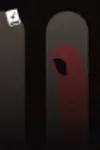
Christina
A great personal overview and introduction for a layperson into some of the most recognizable dishes in west African cuisine. I especially appreciated the author's personal context around the dishes- this recipe is for Sundays when there is time, this spice mix is unique to her family, etc. Very good, and recommended.
By stating the completely obvious, yet.... lost... situations that constitute hanging out, the author emphasizes what has been taken from us by the attention or lack thereof of digital media. I come away from it wanting to make connections with people in real life, and while I'm still afraid of doing so, I'm going to extend myself a lot of grace in trying, thanks to this book.
I only skimmed this book, because it was dense, but not with information as with anecdotes. Not really my taste.
I took what helped and left some of the rest (the part where the author presented as an anecdote that a woman hit her kid with a belt, and she shouldn't feel shame for it, was where I checked out completely). I wouldn't recommend the book, not really. Looking for a better one on the topic.
Not only should everyone read this book for the insight into history that they may or may not know (much in the style of “stuff you missed in history class,”), they should read it for the second layer, the meta one, that of how this flawed history is chosen and pruned from the author all the way down to the teacher level.
Note: I received an advanced copy of this book. I read quickly, but not that quickly.
And this is not a book to read quickly. Quite a few times, I put it down to put myself back in the moments described, guideposts for what experience of mine I could share with Cassie. While 2020 was hard for everyone, as every advertisement ever likes to remind us, it was disheartening, impossible, and deadly for nurses.
Like Cassie says, you have to be a bit of a rubbernecker to be an ICU nurse, and similarly I was very interested in what her experience was- there was news coverage of what our “heroes” were doing in 2020, but not nearly enough, as she relates.
This book is a textual scrapbook of her experience, from headlines to group chats to private journals. It was not always an easy thing to read, as someone who empathizes strongly with people, but it was a very important and enlightening thing to read.
As we continue in the pandemic, as it turns bad again, anyone interested in reading this book will want to know this experience, this mindset. We're all so tired. But this perspective is so, so important. Even the “luckier” nurses, geographically, resource-wise, or administration-wise, were ground to the bone in 2020. We can't let them down, not when protecting them is so easy.
Read the book. That's really, after 2020, watching the Delta variant numbers rising, that's all I've got.
Meh. The protagonist was too conveniently connected to everyone, stumbled upon too many things, and knew less than she thought she did, but somehow it worked out for her.
I was more interested in her relationship with the police officer than I was with her boyfriend. I'm writing this just a week after I finished it, and I'm not entirely sure of any of their names. Except the skeleton's. That was Patience.
Each piece of this book was engaging. It was like listening to Dan Carlin just free-form discussing the different ways, in history, the world was believed to be ending.
I would say the book overall does not tend to make... an arc? But that would be an intensely hard thing to do- to put any kind of overarching themes or lessons to all these various apocalyptic scenarios.
I would say that each piece is also well thought out. Spitballing how things might have been different, and why things happened the way they did, is one of Dan Carlin's biggest strengths, as well as his immense body of research (or as he calls it, his notes from his shows).
And as I quoted before, his thoughts on pandemics are so accurate as to really hurt, today, in April 2020.
Honestly, I wanted this book to be more structural/ idea-spawning rather than inspirational.
I'm glad that Ryder got a lot out of his organizational method. I do not expect to find the meaning of life in a notebook that I keep. I expect it to reflect my life, in whatever way is best for me. That's it. I found the rest of the claims pretentious.
I don't know if it's just me, but I think the stories in this series are starting to follow a kind of rote fill-in-the-blank kind of structure.
We begin: Dresden, [explain how he's a wizard/detective/wizardetective] whose life is a mess [insert comments about coke cans and stale pizza and Mister], is presented with a crappy case [insert blase description of supernatural thing here]. Dresden is not prepared for this [insert how he's sick, tired, meh], and now he's screwed unless he [insert supernatural deadly stakes here].
[insert Mandatory Murphy Time]
[insert deadly person with great boobs, described at length]
[insert some kind of sidekick to be a foil for Dresden]
[insert an existential crisis for Dresden putting people in danger. He does it anyway]
[insert Dresden reaching his limits and finding inner reserves over and over again]
[insert it's all cool back at home scene at the end. Cue Mister.]

















































